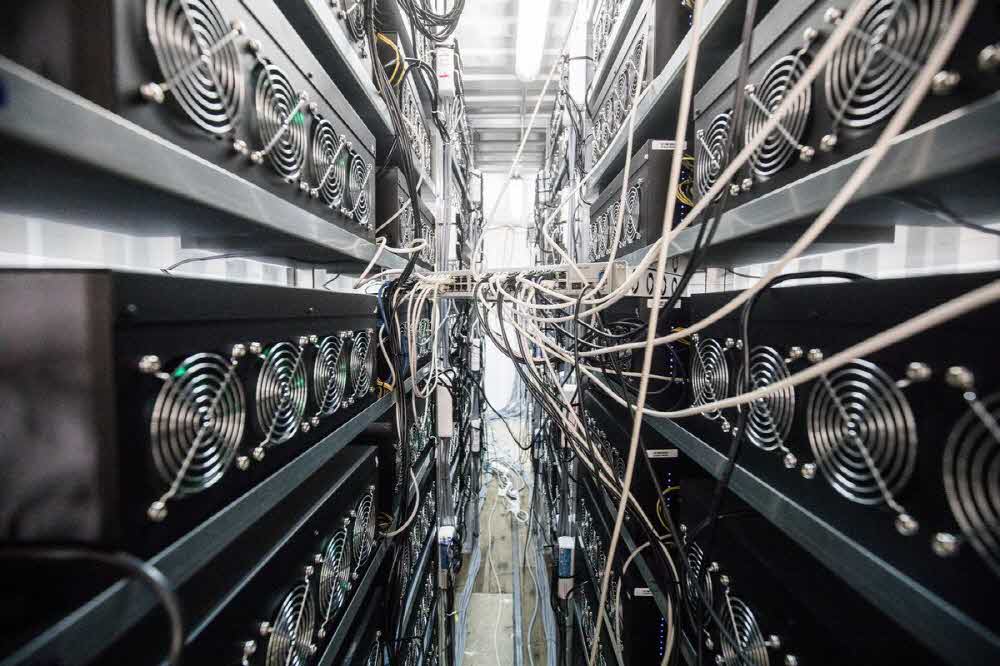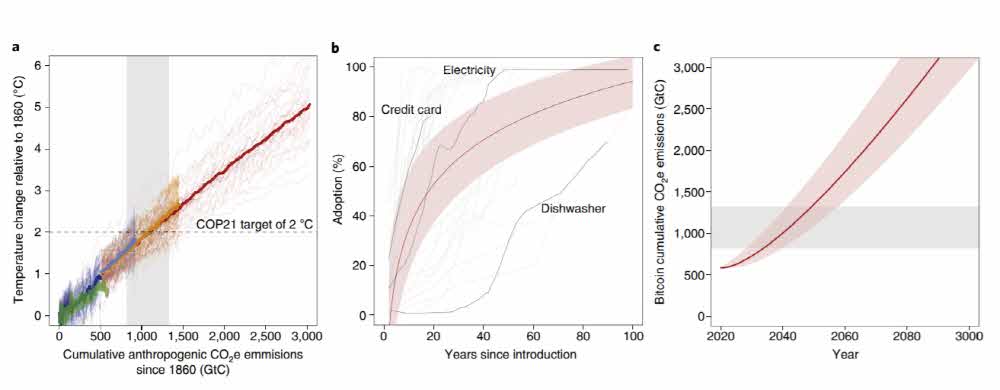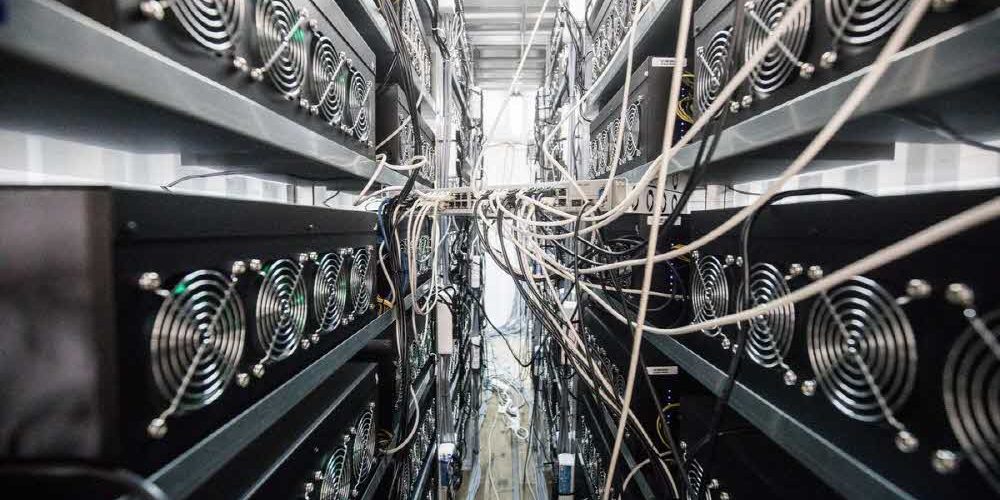
A recent United Nations climate change report says that if temperatures rise above 1.5 degrees Celsius there will be huge climate change. However, the temperature rise of more than 1.5 degrees Celsius can be achieved within 20 years by bit-coin digging.
If bit coin spreads around the world like other payment systems such as credit cards, the heat generated by bit coin mining is likely to raise the global mean temperature by about 2 degrees by 2033. The research results are a result of a combination of data from the University of Hawaii’s research team on how well the bitcoin is being mined, how efficient it is, how well it is mined, and the energy consumption in the country where the mining facility is located.
The team estimates that bitcoin mining has produced 69 million tonnes of carbon dioxide in 2017. It accounts for 1% of the world’s carbon dioxide emissions from energy production. In addition, considering that bit coin is 0.03% of non-cash transactions in the world, it is pointed out that energy consumption is too much.
To predict the degree of impact on the bitcoin mining environment, the researchers refer to the penetration rate of credit cards and dishwashers. The credit card was too fast to dispense and the dishwasher was on the contrary. For this reason, these two are compared.
Assuming that the bit coin is spread by the average rate of diffusion of these two technologies, the global average temperature will increase by 2 degrees in 16 years. Even if it is said to be at the slowest pace, bitcoin is expected to increase the global average temperature by more than 2 degrees within 22 years.
Why bitcoin mining affects global warming. Bitcoin mining requires as much computing power as is well known. Depending on the mining facility, up to 3,000 mining computers may be deployed.
According to Dutch cryptographic analysis site Digiconomist, Bitcoin mining is using almost the same power as Australia. Etherium mining, which has grown to a level comparable to that of bit coins, is also known to be used by small countries.
The results of a study by the University of Hawaii researchers that the average global temperature could increase by 2 degrees by 2033 could be quite shocking. It is already known that electric power demand is high in the bitcoin drilling process, but the impact on the environment is not precisely understood. Of course, we can not predict the future of Bitcoin accurately, but considering the speed of dissemination of other technologies, it is possible that the impacts of climate change could be bad news for both humans and animals if they are spread at the fastest pace.
However, it should be kept in mind that the predictions are based on the assumption that the share of fuel or renewable energy used for power generation will remain the same until 20 years. If more renewable energy is supplied globally than now, the environmental impact of bitcoin mining will surely be less. Also, if Bitcoin’s weight and value in the cryptographic market are reduced, the impact on the environment will naturally also be lowered.

Some cryptographers have already started using clean energy. As the cryptography is done 24 hours a day, it will be necessary to reduce the electricity demand for cryptography mining or find alternative energy.
On the other hand, there is also a positive prediction that bit-coin and other coin-borrowing opportunities will be opportunities for new infrastructure development.
Iceland, which has been attracting attention as a place to install a cryptography mining system because it can get low-cost electricity, the power consumption by mining once exceeded the household power consumption of the whole of Iceland.
Of course there may be a concern about energy consumption, but in Iceland there are only industries like fishing, tourism, and aluminum refining, but there is also the atmosphere that expects a new portfolio of data centers to be added.
The Icelandic Institute for Intelligence Machines says that artificial intelligence, which will require more data than computing power now, will require more computing power in the next 50 years. In this respect, data centers May be the center of the industrial revolution for this.
Whether bitcoin mining will further adversely affect climate change, or whether it will serve as a basis for high computing capacity, such as artificial intelligence, using infrastructure, but we have to worry about how to effectively use and prepare for adverse effects It seems obvious.




















Add comment